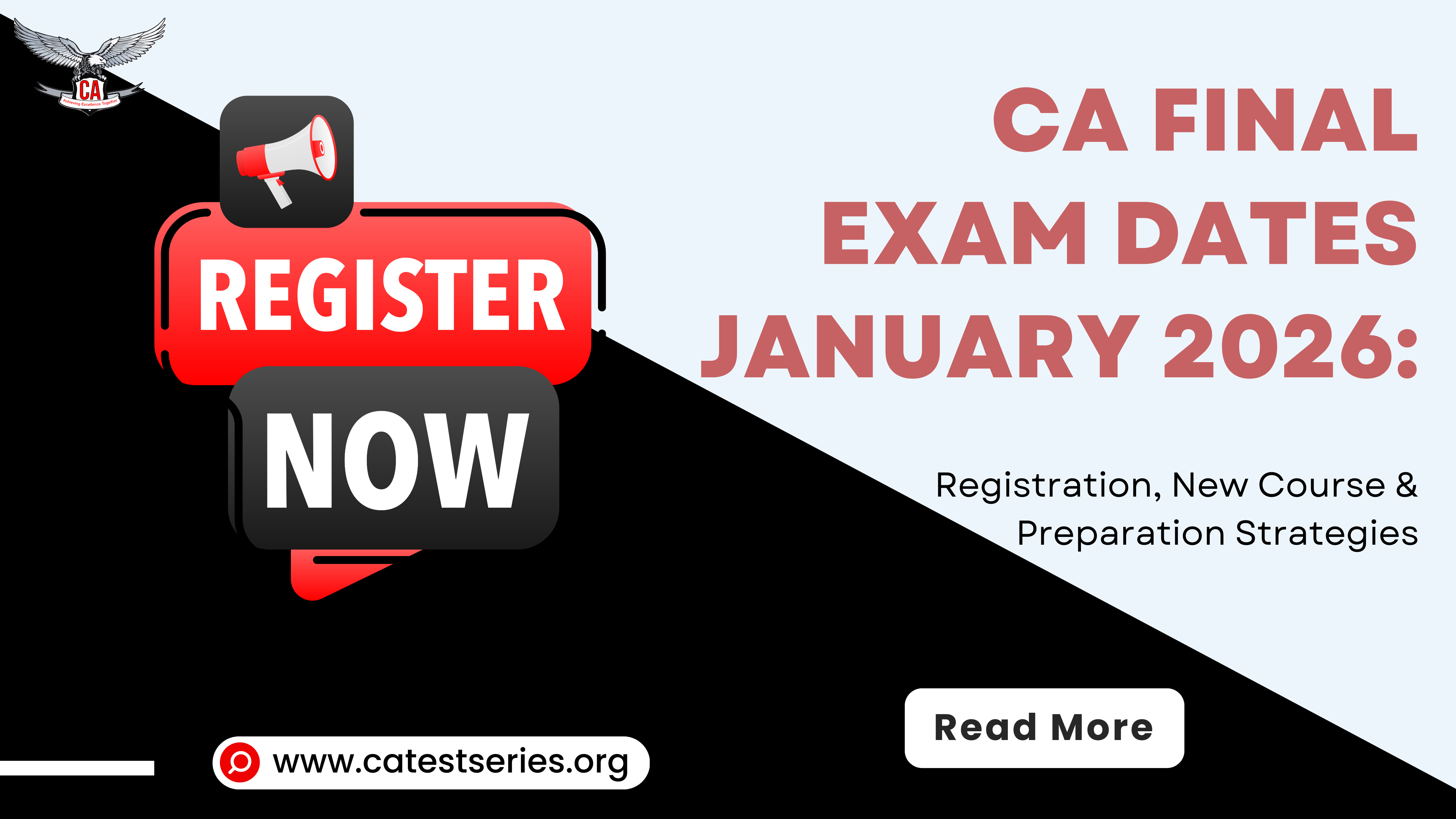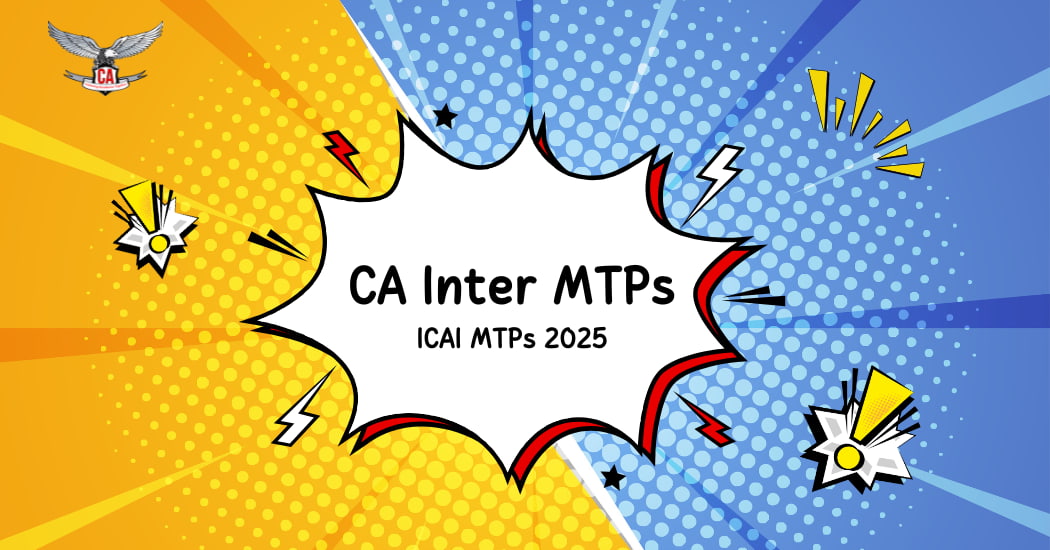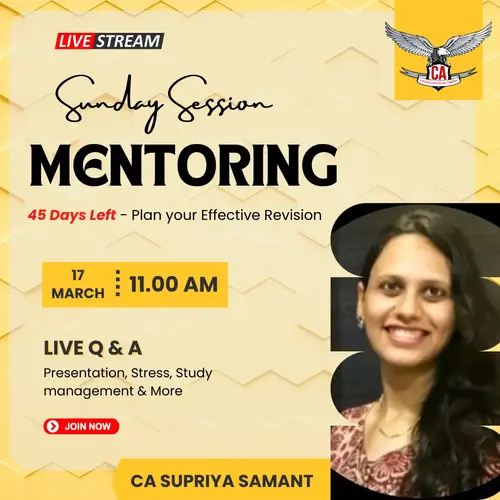What Next? Career Options After CA in India and Abroad
What comes after CA? Chartered Accountancy is a dream course that opens the door to a myriad of employment opportunities.
- The options in this course are virtually limitless, and they may be tailored to match your interests, standards, and earnings. To become a Chartered Accountant, one must either start their own practice or work for a corporation.
- A CA can be appointed to various job profiles, ranging from auditing and taxation to investment and finance, owing to their specialist understanding in multiple fields.
- Soon after the CA Final results are announced, the next question on the minds of those who are preparing for the exam is, "What comes next?"
In this article, we have listed some of the exciting job options one pursues after becoming a Chartered Accountant to answer the unique question: what should I do after becoming a Chartered Accountant?
Career Options after Chartered Accountant
As we mentioned before, Chartered Accountancy is a self-contained degree program.
Consult with someone who has finished Chartered Accountancy. Ca degree open the door to an extensive range of options?
Some of them are included in this list. Take a look at the examples below:
1. Internal Auditor :
- As we all know, certified public accountants (CPAs) are the only individuals permitted to audit an organizations financial statements.
- As a result, there is always a great need for CA in the Audit industry, and this is also the field where a CA receives the most significant compensation increases.
- The work pressure in this job profile, on the other hand, is relatively high. After completing the CA Inter, one can work as an Internal Auditor for a corporation.
On the other hand, various firms and institutions have policies that state that only a certified Chartered Accountant may work as an Internal Auditor and not a CA Inter passed applicant.
2. Direct and Indirect Taxation:
- CAs are sometimes referred to as "Taxation Experts" in some sectors. Many Chartered Accountants begin practicing in either direct (Income Tax) or indirect taxation (GST and other laws).
- With the implementation of new tax legislation in our country, the scope of a Chartered Accountant in this field is becoming increasingly broad in scope.
3. Banking and Insurance Sector:
- As a general accountant, you should not expect to be responsible for the banks essential accounts or create its financial statements according to banking regulations and industry best practices.
- Banking Accounts must be handled by someone familiar with banking regulations, including their compliance with them and other industry standards.
- They should be competent in participating in the bank financial affairs and working on their financial strategies, control, funding, forecasting, and other related tasks.
4. Finance Management :
- To benefit from CAs extensive understanding of the financial sector, a growing number of organizations are looking for Qualified Chartered Accountants to manage their financial affairs.
- This job profile is highly regarded and necessitates the possession of a wide range of technical abilities.
- One must keep up with industry trends, comprehend the most lucrative investments, anticipate the companys business, and then advise the organization on these forecasts and investments.
5. Work as a teacher:
If one is employed in the field of education, one can also teach part-time.
- Teaching is a prestigious profession with high ethical standards. It does not only supply you with money but also with a good reputation, similar to CA. Parveen Sharma Sir, CA. Vinod Gupta Sir and CA. Bhagwan Lal, sir.
- Some CAs are teaching through doing their jobs or putting in their own practice time.
- Teaching positions are available in educational institutions for CAs, commerce graduation coaching programs, select post-graduate colleges, and the Indian Chamber of Commerce and Industry.
- Furthermore, this does not have to be a full-time job. Along with your work or practice, you may choose to pursue academics.
Thus, if we conclude:
- The beginning phases may not be financially profitable, but in the long run, it is on a level with, if not better than, any other industry in terms of earnings potential.
- This area is just for individuals aware of the difficulties students face and who wish to continue their education.
6. Business:
Choosing a self-employed career or working for a family business is a preferable alternative in most cases. When it comes to starting a business, one of the most famous sayings is, "There is no better choice than starting your business."
This indicates that there is no other better alternative than starting your own business, whether it is trade or manufacturing.
Many CAs join their family businesses to help them expand and improve; nevertheless, starting your firm if you have no prior experience is quite challenging.
Always keep in mind the famous businesspeople of India, such as Dhirubhai Ambani. Dhirubhai was not born into a wealthy household and did not have a formal education, yet he was a successful businessman anyway.
Just Remember Always: "If you think you are going to do something, you are going to accomplish it.
7. Further Study: Courses after CA:
7.1. ACCA (Association of Chartered Accountants)-
An accountancy profession recognized in more than 180 countries worldwide, the ACCA (Association of Chartered Accountants) is a globally recognized organization.
Since 1904, it has been providing the Chartered Certified Accountant (CCA) Qualification. ACCA now has 208,000 members and 503,000 pupils, according to its website.
- This course will provide you with an understanding of UK GAAP and rules and certification to practice as a Certified Accountant (CA) in a variety of countries.
- Although a CA degree is required to operate in India, ACCA, in conjunction with a degree provides you with tremendous growth opportunities if you intend to work for a multinational corporation in the future or if you wish to go for international accounting.
Confused about the differences between ACCA and CA? Follow the link to have a better understanding of it...
The advantage of pursuing ACCA after completing CA is that ACCA recognizes the CA certification and grants exemptions for nine out of fourteen exams, resulting in an Indian CA taking only five papers to broaden their professional opportunities.
7.2. CISA and DISA
In India, you may have heard that CAs are not permitted to do system audits unless they hold a CISA or DISA certificate. This is correct.
ISACA offers the CISA, an internationally recognized course, while the Institute of Chartered Accountants of India (ICAI) offers the DISA, a locally recognized degree.
If you want to do an information technology audit in the future, you should enroll in this course after completing CADISA may only be obtained by applying through a competent Chartered Accountant.
7.3. CFA (Chartered Financial Analyst)
If finance is your area of interest, the CFA program is a fantastic alternative to pursue after completing your CA degree.
Areas like Investment Banking, Hedge Funding, and Portfolio Management will be excellent career options for someone who has finished both the CA and CFA programs.
The scope of CA may be confined to auditing the Balance Sheet and providing present-day perspectives on historical events. Still, the scope of CFA is expanded to include reviewing the Financial Statements.
Thus, CFA is a globally renowned course that continues to be offered as part of a graduate-level program. After graduating from high school, one can apply for the CFA program.
7.4. Post Qualification Courses Offered by ICAI
In addition to post-qualification courses such as
- Diploma in Insurance and Risk Management
- International Trade Laws and the World Trade Organization
- Management Accountancy Course, Corporate Management Course
- Tax Management Course
- Diploma in International Taxation and other related programs are offered by the Indian Council of Applied Finance (ICAF).
After becoming a Chartered Accountant, one can pursue any path of study that they desire in accounting.
Following the completion of ones Chartered Accountancy course, one can choose from a few different courses.
Even though CA is a stand-alone qualification, these courses assist in improving your knowledge and raise your chances of being picked for various positions based on your field of interest.
Conclusion: What After Chartered Accountancy?
If we conclude, then there are five different categories of career opportunities after ca in todays competitive world that you can explore:
a) Practice CA
b) Entrepreneurship
c) Join any CA Firm
d) Work As Teacher
e) Further Studies
If you want to put your CA skills into practice, you can do the following:
- Because of tremendous competition and pressure from clients, practicing law as an individual or as a sole proprietor is an antiquated idea these days.
- As a result, it is recommended that you form a partnership business with a minimum of four CA. In compliance with the LLP Act 2008, you can also establish a limited liability partnership (LLP).
Start practicing as:
- Company Secretary in Practice
- CA in Practice
- Cost Accountant in Practice
- Architect professional
- Engineer (Chartered)
- Actuary Professional
- Forensic accounting
Creating a consulting business or becoming a partner in a large audit firm
- It is a complex undertaking to be the owner or a partner in a large audit business. To get to the partners position in an audit company, you must first work as an employee in that business.
- Gradually, you will rise through the companys ranks, from manager to senior manager to associate director and, eventually, to the position of partner.
Job opportunities in CA Companies
Career opportunities for Chartered Certified Accountants are available in the following organizations, as previously mentioned:
1. Internal Auditing
2) Tax Auditing
3) Forensic Auditing
4) Career in Accounting and Finance.
5)Taxation Advisory (Both Direct and Indirect)
6) Statutory Audit under applicable statutes
7) Managing Treasury function
8) Others like Bookkeeping, Finance Controller, Preparation of financials of companies, etc.
Thus,
- In the preceding article, we discussed various job opportunities in many companies that one should be familiar with after becoming a Chartered Accountant.
- Do not just blindly follow other peoples recommendations to pursue CPA, CS, CMA, or other professional designation.
- Every individual is unique and possesses a unique set of talents; consequently, what works for others may not work for them.
- You should select the one career opportunity that best matches your interests and abilities.
I hope you enjoy this article; therefore, please spread the word about it so that the most significant number of students may benefit from it.













